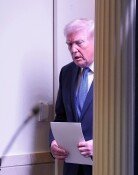KOLAND agrees to sell off Hyundai¡¯s Sosan farm
KOLAND agrees to sell off Hyundai¡¯s Sosan farm
Posted November. 14, 2000 20:30,
The issue of the sale of Sosan farm, a key element in Hyundai Engineering & Construction¡¯s self-rescue plan, has finally neared a settlement as the government has decided to bear the burden.
The state-run Korea Land Corporation (KOLAND) said Tuesday that it will act as a proxy for Hyundai Engineering & Construction (HEC) and sell the farm to private investors. The corporation will give 210 billion won to HEC soon in an advance payment for the land sale after taking out a loan from Housing and Commercial Bank (H&CB) at an annual interest rate of 9.5 percent, but the interest will be paid by HEC. The KOLAND decision has opened the way for the infusion of liquidity into the debt-ridden company.
The deal is regarded to be beneficial for HEC, too, as it will not have to sell the land, which represents its founder¡¯s spiritual legacy, and yet can obtain funds to help itself weather the current crisis. The company also received a guarantee that the land will be sold in parcels to private investors at market prices as far as possible and the parcels left unsold will be bought by the government (Korea Agricultural and Rural Infrastructure Corporation, or KARICO. KOLAND is also happy about the deal because it will collect commissions from HEC without worrying about possible losses.
According to HEC, about 2,900 citizens have expressed their intention to purchase the Sosan farmland as of Nov. 14. They are enough to buy up about 140 million pyong of land. However, conditions for the land purchase are troublesome as prospective buyers must present their written plans for farming. Therefore, officials said that unless the government lifts the restriction on the land¡¯s usage, chances are high that KARICO will end up buying the lion¡¯s share of the land.
Originally, KARICO wanted to purchase the entire Sosan farm, but the deal collapsed after Hyundai rejected negotiations over the price of 220 billion to 230 billion won offered by the corporation. The price is only 66 percent of the land¡¯s official value. After this came KOLAND¡¯s second option of selling it on consignment. Presently, there are intermediaries such as KOLAND and H&CB in the Sosan land sale, but the ball will be turned over to KARICO next year.
The issue of farmers and fishermen, who are demanding land allocations and compensation for damages they suffered in the creation of the reclaimed land, also remains unsettled. In 1991, HEC accepted the government¡¯s demand to give priority and allocate lots to farmers and fishermen when it disposes of the land in return for the changing of its license for the project, but the company failed to keep this promise. So fishermen who suffered damages due to the land reclamation are strongly calling for Hyundai to adhere to its pledge. It is a general rule that when the government distributes reclaimed land lots to farmers, it sells them at lower than market prices and lets the buyers make the payment in installments over a long period. Hyundai maintains the position that it will hold consultations on the problem but cannot sell the land at cheap prices.
According to Chang Su-Yong, chairman of the South Chungchong Province branch of the National Farmers¡¯ Association, the fishermen are demanding that they be given 10 million pyong, about one third of the Sosan farm. KOLAND and KARICO are now required to solve the problem.
Sin Yeon-Su ysshin@donga.com







